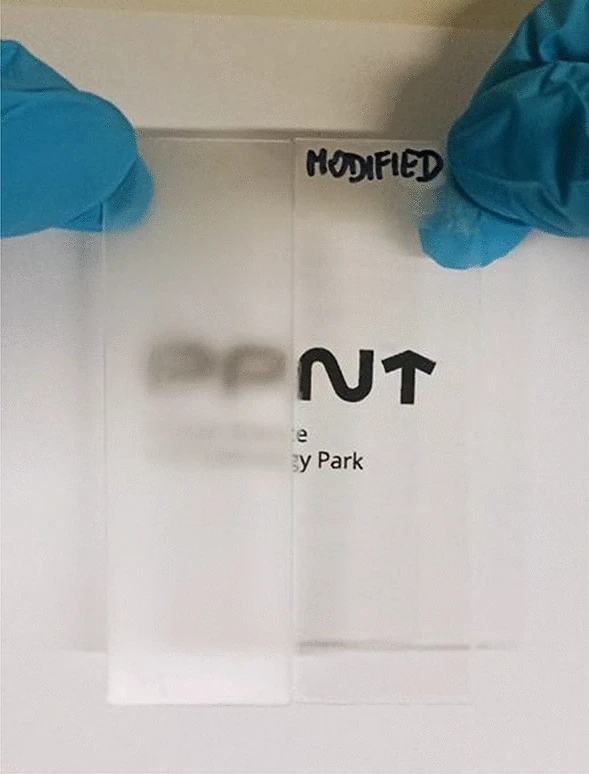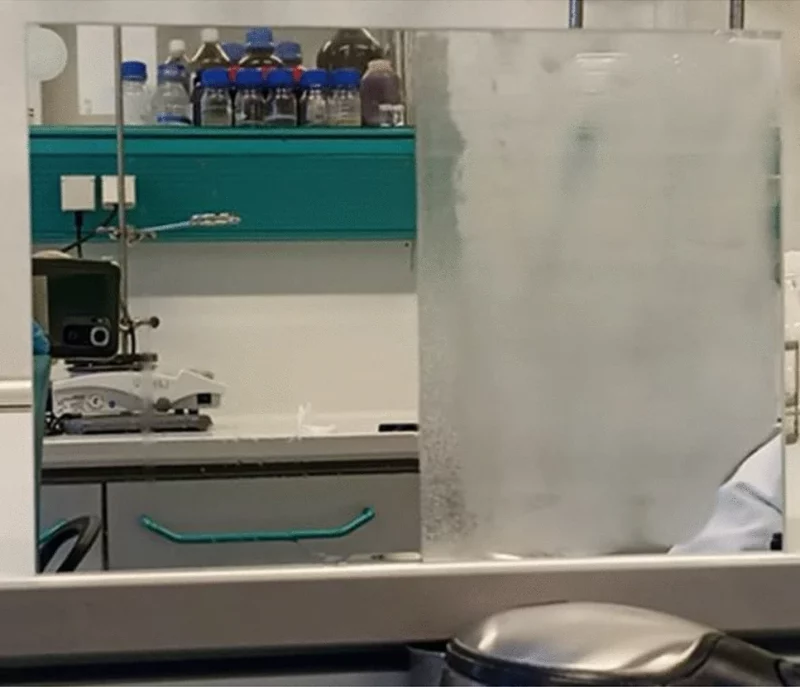Can the issue of fogging glass be solved?
2023-12-19 The issue of fogging or frosted glass affects not only our daily activities but also industries such as aviation, photovoltaics, and medical analysis. This phenomenon results in a loss of light transmission, blurred vision, and reduced or no visibility.
The issue of fogging or frosted glass affects not only our daily activities but also industries such as aviation, photovoltaics, and medical analysis. This phenomenon results in a loss of light transmission, blurred vision, and reduced or no visibility.
The research team, led by Prof. Hieronim Maciejewski, Chairman of the Board of the Adam Mickiewicz University Foundation and Director of the Park, addressed the problem. Their findings were published in the prestigious journal Scientific Reports, a part of the Nature group. The article is titled ‘Thiol-ene click reaction as an effective tool for the synthesis of PEG-functionalised alkoxysilanes-precursors of anti-fog coatings’.
A common method of achieving an anti-fog surface on glass is to apply a special coating. These coatings are divided into (super)hydrophobic coatings, which reduce adhesion and increase the repulsion of water droplets, and (super)hydrophilic coatings, on which water forms a homogeneous pseudo-film on the surface, thus preventing fog and frost.
The team utilised the ‘thiol-ene click’ reaction to synthesise a series of silanes that contain an alkoxysilyl group and a polyether chain in their structure. When applied to glass, the coatings based on the developed compounds maintain excellent transparency. They impart (super)hydrophilicity and exhibit anti-fogging and anti-frost properties.
Studies have demonstrated that the coating created by our researchers not only prevents evaporation but also exhibits durability. Coated tiles stored for two months under laboratory conditions retained their anti-fog properties. Additionally, they maintained excellent transparency, which is crucial for their use on windows, mirrors, or optical devices.
The developed coatings have the potential to solve the issue of fogging glass without affecting their quality or visibility. Their use can have an impact not only on our daily lives but also on various industries.

